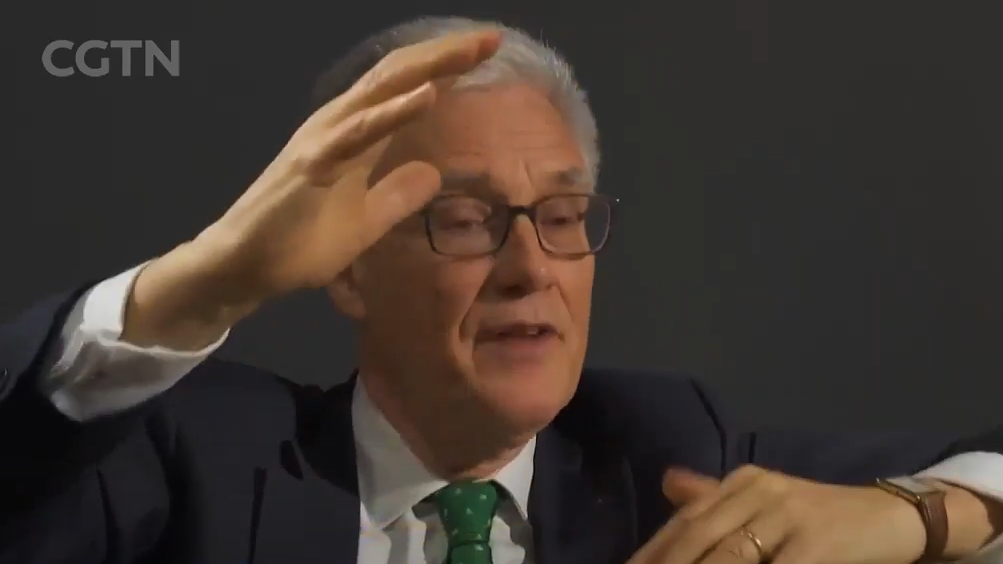World leaders, environmental experts and activists joined the summit's opening ceremony in Glasgow on Monday, kick-starting what are set to be two tough weeks of global negotiations on how the world can pull together to combat the most disastrous effects of climate change.
Billed by its UK hosts as "the best, last hope" to save the planet, the start of the conference has already had a slew of governmental environmental pledges and ominous warnings from key players. Here's what happened on day one of COP26.
· UK Prime Minister Boris Johnson set the tone for the summit on Monday, saying that "humanity has long since run down the clock on climate change. It's one minute to midnight on that Doomsday clock and we need to act now." The UK also used the opportunity to announce plans to fund more $4.11 billion worth of green investments and new guarantees to support clean infrastructure in developing economies.
· India's Prime Minister Narendra Modi announced 2070 as the target for his country to reach net-zero carbon emissions, two decades beyond what scientists say is needed to avert catastrophic climate impacts. Modi defended India, saying the country had stuck to its climate pledges "in spirit and letter" and said it was home to 17 percent of the world's population but was responsible for only 5 percent of global emissions. Modi also said India would increase the share of renewables in its energy mix from around 38 percent last year to 50 percent by 2030.
· President Joe Biden doubled down on assurances the U.S. would keep its promise to slash greenhouse gas emissions by more than half by the end of the decade, despite the key policies ensuring those reductions being uncertain. He said: "None of us can escape the worst of what's yet to come if we fail to seize this moment."
· Brazil said it was raising its climate commitments after more than two years of soaring deforestation under President Jair Bolsonaro. Speaking by live video link, Brazil's Environment Minister Joaquim Pereira Leite said the country would cut its greenhouse gas emissions by 50 percent by 2030, compared with a previous commitment to reduce emissions by 43 percent over that period. Those reductions are calculated against emission levels in 2005. However, that baseline was revised down last year, making it easier for Brazil's targets to be met.
· Swedish climate activist Greta Thunberg retweeted an appeal for her millions of supporters to sign an open letter accusing leaders of betrayal. "This is not a drill. It's code red for the Earth," it read. "Millions will suffer as our planet is devastated -- a terrifying future that will be created, or avoided, by the decisions you make. You have the power to decide."
· Thunberg also told fellow activists from "Fridays for Future" outside the summit that politicians attending COP26 are "pretending to take our future seriously." She said change would not come from politicians at the summit but from individuals showing leadership.
· In a written statement at the conference, China's President Xi Jinping urged developed countries not only to do more but also support developing nations to do better on climate change, according to Xinhua.
· UN Secretary-General Antonio Guterres told leaders that failure at a conference on global warming would mean they should have to come back with improved pledges each year, rather than according to the current five-year timetable.
"If commitments fall short at the end of this COP, countries must revisit their national climate plans and policies – not every five years [but] every year and every moment," said Guterres.
He also added that there was often "a deficit of credibility and a surplus of confusion over emissions reductions and net zero targets" but added that the UN was setting up an expert group to measure and analyze net zero commitments of non-state actors.
· Naturalist David Attenborough told world leaders "the world is looking to you," in an emotional speech. And said young people should provide impetus to "turn tragedy into triumph" on climate change.
00:52

Juliet Mann from Glasgow
The main negotiations between world leaders and climate change advocates might be happening in the Blue Zone (official United Nations territory for the duration of the conference) but the climate conversation is happening all around the city of Glasgow.
I spoke to Alison McRae, Senior Director at the Glasgow Chamber of Commerce, about how to inspire and the business community to embrace the circular economy as a way of becoming innovative and future-proofing their businesses before all the regulations come through.
Most of the business community will be on the sidelines, but COP26 represents big opportunities to enhance their reputations by aligning with the messaging of climate concern. There are also potentially big commercial gains as new low-carbon markets, products and services emerge.
Adair Turner invited us into his suite to talk about what he is hoping COP26 will achieve. Now Chair of the Energy Transitions Commission, a global coalition in Europe, he has been interested in the issue of climate change for 25 years and particularly in the role senior people in business can play.
He says time is running out, but there have been remarkable breakthroughs in many of the technologies that can help us crack the climate crisis.
04:18


